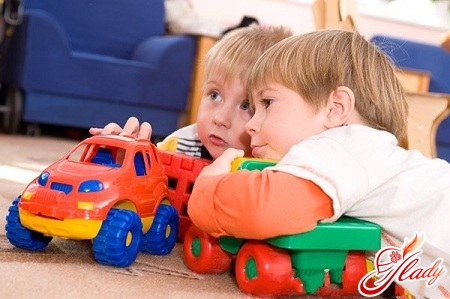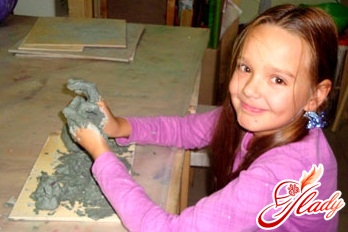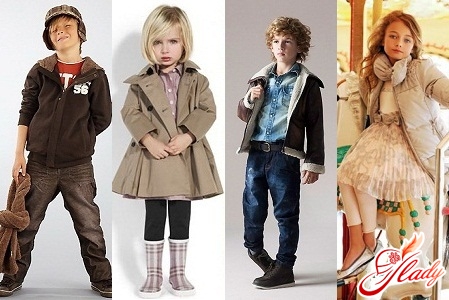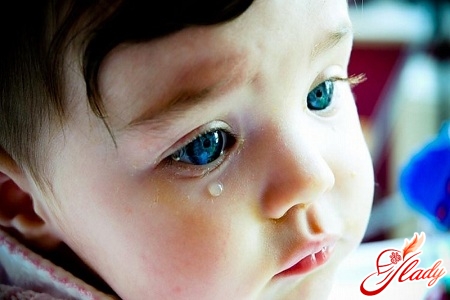 “After all, it doesn’t happen in this world that people are lostChildren! "In the cartoon of the same name, the baby mammoth finally found his mother. And if you remember, the furry baby's mother was an elephant. Unfortunately, people also lose their children... Today, the problem of orphanhood in Russia and the CIS countries is very acute. But, fortunately, recently more and more families are deciding to take such a responsible step as adopting a baby. Of course, this act deserves great respect. But along with making such a serious decision, potential adoptive parents have a huge number of questions: how will it all go, will they find "their" baby, how will the further relationship develop? In the event that there are biological children in the family, the situation becomes even more complicated. No - no, of course, we are in no way dissuading you from adopting a baby. But in order to reduce the possible occurrence of problems to a minimum, it is worthwhile to carefully prepare in advance. In this article, we will consider such issues as choosing a child, the specifics of relationships between adopted and biological children, and some others.
“After all, it doesn’t happen in this world that people are lostChildren! "In the cartoon of the same name, the baby mammoth finally found his mother. And if you remember, the furry baby's mother was an elephant. Unfortunately, people also lose their children... Today, the problem of orphanhood in Russia and the CIS countries is very acute. But, fortunately, recently more and more families are deciding to take such a responsible step as adopting a baby. Of course, this act deserves great respect. But along with making such a serious decision, potential adoptive parents have a huge number of questions: how will it all go, will they find "their" baby, how will the further relationship develop? In the event that there are biological children in the family, the situation becomes even more complicated. No - no, of course, we are in no way dissuading you from adopting a baby. But in order to reduce the possible occurrence of problems to a minimum, it is worthwhile to carefully prepare in advance. In this article, we will consider such issues as choosing a child, the specifics of relationships between adopted and biological children, and some others.
Hello, Mom and Dad!
Family psychologists claim that the mostdifficult - it is choosing a child. Of course, the question of how to choose an adopted child sounds very cynical, because a child is a little person, not a bucket of strawberries at the market. But, nevertheless, all adoptive parents will have to go through this stage, no matter how difficult it is. Very often, parents try not to think about it, believing that during the first visit to the orphanage, everything will be “tell their heart”. That is so, but remember that before you have time to cross the threshold of the orphanage, dozens of children will look at you with hope. And in their eyes there will be only one question - “Are you my mom and dad? Are you coming for me?” And in this situation, it is easy to get confused. Of course, you are unlikely to be able to avoid this, but you can narrow the search if you prepare in advance. It is worth immediately deciding on the basic requirements - the child's gender, age, basic features of appearance, temperament, health. This issue must be approached very carefully, because a child is not a toy, and you will have to live with him for the rest of your life. And it depends only on you whether this life will be happy.
Age of the baby
In most cases, potential parentsprefer to take a younger child into the family. They explain this decision by the fact that the baby does not remember his relatives and previous life. And staying in an orphanage did not have time to leave an imprint on the character of the baby. Yes, and another important fact - by taking a baby into the family, parents can go through all the stages of growing up, which for many is also a decisive factor. And do not forget about the adaptation process. The younger the child, the more painless everything will be. Having chosen a child under three years old, remember that your new family will enjoy all the privileges provided by law - maternity leave, cash benefits. But do not deprive the chance to find a family and older children. If you decide to take an older child, you need to take into account some factors. Firstly, kindergarten or school. If the child is of age to attend a children's educational institution, be sure to agree on this issue with the teachers in advance. Secondly, pay attention to the children of relatives, friends and acquaintances. This will bring double benefit. You will be able to observe the behavior of children of different age groups and make a decision. Well, you will get to know the potential friends of your future son or daughter. In addition, you will acquire some skills in communicating with children, which will also play into your hands in the future. Psychologists also advise paying special attention to the age of the baby to those parents who have lost their own child. Of course, the loss of a child is the worst thing that can happen in the life of any person. But it is categorically not recommended to take into the family a baby of the same gender and age at which the natural child died. Otherwise, the adoptive parents will subconsciously make excessive demands on the child. And, of course, the baby will simply physically not be able to meet them. And everyone will be unhappy - both the child and the baby. Therefore, it is much wiser to choose a person who is not a "replacement".
Appearance, temperament, health
Let's move on to the next, no less important question.- the child's appearance. Of course, you can't judge a child by his or her face. However, all parents have a natural desire for their adopted child to be at least a little like them. However, you shouldn't turn this into some kind of cult - it won't take long for the resemblance to appear. Facial expressions, manner of communication, smile, gestures - all this will become common as a result of your constant communication. In addition to appearance, you should also pay attention to such an aspect as the child's temperament. This point is very often overlooked by parents. And in vain - after all, if the parents are extremely calm people, it will be much more difficult for them to cope with a fidgety baby than with a phlegmatic person. Well, and if the parents are energetic people, a sanguine baby will also not be the best option. In order to find out the characteristics of a child's character, you need very little. Just ask the teachers how the baby behaves in the orphanage. Believe me, they will be happy to tell you about all the character traits of your baby. And your own observations during a visit to the orphanage will give you answers to many questions of interest. The baby's health should also not be overlooked. When adopting, this issue should be clarified first. Be sure to carefully read all the records in the child's medical record. If you have any doubts about the correctness of all the conclusions, you have every right to conduct an independent medical examination in any medical institution of your choice. This opportunity is provided by Russian legislation. And remember that no matter how good an orphanage is, it cannot replace a loving family. Extensive practice shows that many diagnoses dissolve like smoke as soon as a child gets into a loving family.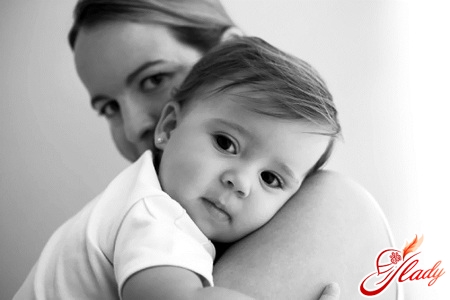
Legal nuances
So, you have found “your” baby and made a choice.The next important step you need to take is to make sure that the baby's biological parents will not insist on returning the baby to the family. If the child is not an orphan from a biological point of view, you need to get a notarized consent from his parents to adopt the child. After that, they will be able to return the child only through court. And the court, as a rule, in most cases takes the side of the adoptive parents. And if the mother of your potential baby is still a minor, the task becomes more complicated. You must obtain notarized consent not only from the mother, but also from her parents - the baby's grandparents. Do not rely on the fact that the child's parents have been deprived of parental rights - these rights can be restored through court. If you are accepting a child into the family who has reached the age of ten, remember that he has the right to choose. In order to take this child, you must obtain his own consent. And only if all these conditions are met will the child be able to move to live with a new family. Adoption automatically gives the adopted child all the same rights that a child born to a father and mother would have. The child automatically receives all property and non-property rights and obligations. Like any blood relative. For example, if the adoptive parents die, the adopted child will become the first-order heir, just like blood children. However, his obligations are the same - if the parents lose their ability to work, the adult child is obliged to care for and provide for the parents financially. Please note that from the moment of adoption, the child is automatically completely released from any obligations towards his biological parents and any other blood relatives. The secret of adoption is protected by law - anyone who discloses it is automatically subject to criminal prosecution. And this is not without reason - such information can destroy the happiness of the family and deprive the child of peace and peace of mind. However, adoptive parents should remember that adoption can be canceled at any time. Moreover, this is done in court. Although, of course, no one will take your child away from you just like that – there must be very good reasons for this. For example, such a reason could be the immoral lifestyle of the adoptive parents, or cruel treatment of the child. But we hope that this will never affect our readers.
If the family already has children
So, the baby has been chosen.If the family already has biological children, parents must prepare them properly for the arrival of a new family member. After all, even for adults, the arrival of an adopted child is a serious test. And what can we say about children in this situation? Let's look at several ways that can make this process as smooth and painless as possible for both parties.
- Prepare your baby in advance
Very often, adoptive parents commit one andthe same mistake - they carry out all the formal procedures without telling the child anything. And they simply present him with a fait accompli, bringing a new brother or sister home. Try to put yourself in the child's shoes. You lived, you were, you didn't particularly worry about anything. The object of adoration of mom, dad, grandmas, grandpas (continue on your own), the center of a small universe within your family. And then mom and dad bring some stranger, with whom you have to share not only toys and sweets, but also - what's worst - the love and attention of mom and dad. And how to live on? Imagine? Exactly! And keep in mind that you looked at the situation through the prism of an adult's thinking. And it's even harder for a child, since it is difficult for him to understand your motivation. And you shouldn't hope that your child is already old enough and will understand everything, even if he is a teenager. He will not be able to fully understand the actions of adults yet. Therefore, involve the child in your plans in advance. Be sure to talk to him in such a way that the child feels his importance. If the child realizes that you respect his opinion and choice, he will probably be more understanding of your decision. Most often, children perceive such information very calmly, since until they see this adopted child, he is some kind of ephemeral. And by the time the little one moves in with you, your own baby will come to terms with this idea. Many psychologists advise taking your own children into the baby's home. On the one hand, this is true - in this way the child will feel involved in what is happening. And a sense of responsibility for the younger brother or sister will most likely appear. However, this can only be done if the child is at least 5 - 7 years older than the expected age of the adopted baby. Otherwise, you risk causing quite a strong psychological trauma to those children who will remain in the baby's home. After all, they will have to regularly watch your child for a certain period of time, who comes and goes with mom and dad. Of course, you can ignore this moment, but you remember that there are no other people's children? There is no point in hurting already unhappy children.
- The right to property
Most often, conflicts are between adoptive and biological parents.children, if they flare up, then on a very material basis - a room, toys, clothes. Therefore, before taking a child into the family, carefully consider all these issues. The first is a room for the child. Do you have the opportunity to allocate an individual nursery for the child? Great. But, alas, this does not always work out. This means that your natural child will soon have a neighbor. Therefore, be sure to discuss this issue with the child in advance. And re-arrange the room with the participation of your son or daughter. Moreover, first of all, you will have to take into account the interests of your natural child. Choose suitable furniture, if necessary, make repairs. If the size of the room allows, it would not be superfluous to at least visually zone the room, for example, with a shelving unit. In this way, you can give both children a sense of personal space. Be sure to buy your adopted child your own toys, books and stationery. In the event that the adopted child uses the things of your natural baby, the likelihood of conflicts between the children is very high. Therefore, properly prepare for the arrival of a new family member home and stock up on everything necessary.
Your baby at home
Finally, your adopted baby is home! Для того чтобы процесс адаптации прошел как можно более гладко и безболезненно, родители должны предпринять необходимые меры. Нельзя упускать из виду тот нюанс, что ребенок большую часть своей жизни прожил, соблюдая весьма строгий режим. Поэтому нельзя его менять кардинально и сразу, так как это может весьма негативным образом отразиться на состоянии нервной системы. Забирая ребенка домой, обязательно выясните у воспитателей, какой именно режим дня был в доме ребенка. Кстати, нелишним будет поинтересоваться, в какую сторону чаще всего сбивал режим ваш малыш. Это поможет вам правильно организовать день малыша в первое время его пребывания дома. Ведь для ребенка нет ничего важнее, чем постоянство. Не забывайте также и про рацион питания ребенка. Обязательно узнайте, чем именно привык питаться ваш малыш. Не стоит сразу же кардинально менять меню ребенка – не настаивайте, если он первое время будет отказываться от тех или иных продуктов. Пусть они даже и весьма полезны для здоровья малыша. Пройдет совсем немного времени, и малыш привыкнет к тому, что мясо, молоко, фрукты и овощи будут присутствовать в его меню. И будет их есть с удовольствием. Но и в случае с лакомствами для ребенка будьте последовательны и разумны. Даже в том случае, если малыш окажется в восторге от черничного варенья или мороженного, ни в коем случае не позволяйте ребенку наедаться до отвала. Это может обернуться аллергическими реакциями или расстройством пищеварения, ведь малыш не привык к подобным продуктам. Последовательность и умеренность – вот ваш главный девиз! Следующий момент, на котором следует заострить внимание – это новые игрушки для ребенка. Конечно же, стремление порадовать малыша вполне естественно. Однако будьте готовы к тому, что огромное количество новых игрушек может не только не обрадовать кроху, но даже и напугать его. Выдавайте новые игрушки понемногу – не более одной в сутки. Кстати говоря, попросите перед отъездом из детского дома какую-нибудь любимую игрушку малыша. Это также в значительной степени облегчит ребенку процесс привыкания к новому дому. Слишком сильные эмоциональные впечатления, пусть даже положительные, также не всегда полезны для ребенка. И это тоже необходимо учитывать. Конечно же, все ваши родственники и друзья захотят придти в гости, чтобы познакомиться с ребенком. Однако не стоит торопиться. Тактично объясните гостям, что с визитом стоит повременить хотя бы пару недель. За это время ребенок адаптируется и привыкнет к новой семье. Кстати говоря, о гостях. В том случае, если помимо приемного ребенка в семье есть кровные дети, не стоит забывать и про них. Поставьте себя на место ребенка. Появился новый член семьи – приходят гости, приемный ребенок попадает в центр всеобщего внимания, ему дарят подарки. Согласитесь, не так уж и приятно. Поэтому попросите гостей принести что-нибудь для обоих малышей. Либо же самостоятельно купите небольшие подарки и вручите незаметно гостям в прихожей. Будьте внимательны с бытовой химией и различной парфюмерией. Постарайтесь, чтобы в доме не было никаких резких запахов. Организм малыша может среагировать на них не самым лучшим возрастом. То же самое касается и домашних животных – заранее выясните, нет ли у ребенка аллергии на собачью или кошачью шерсть. И обязательно будьте рядом во время первого знакомства ребенка с домашним животным.
Educational process
Of course, the task of the adoptive parents isnot only caring for the child's physical well-being, but also his or her upbringing. However, remember that educational work with adopted children has its own characteristics. You should not immediately overload the child with a lot of educational information. In order for you to establish a trusting relationship, you need to win parental authority. And the most important thing that needs to be done for this is to make the child feel protected, loved and desired in the new family. And an excessive amount of novelty will only slow down this process. And this applies not only to babies, but also to older children. You should not zealously take on the cultural education of the child from the very first days. All excursions should be postponed until a later time, when the child has fully settled in the new home. Many adoptive parents mistakenly believe that the child will begin to show emotional attachment to them from the very first day. However, most often this does not happen so quickly. But be prepared for the fact that the child will react very painfully to your absence, even for a very short time. Are you going to the store? There is a high probability that when you come home, you will find your little one in tears. Are you going to take a shower? Be careful when opening the door - most likely, the baby will be waiting for you under it. Many adults are irritated by this phenomenon. But this is not an empty whim of the child. He has just found a mom and dad. And it is quite natural that he is very worried about this. Therefore, treat the situation with understanding so as not to spoil the relationship with the child at the very beginning. If possible, take the child with you. And if for some reason this does not work out - be sure to tell the child about the upcoming separation, assure him of your love and promise that you will definitely return soon. Family psychologists advise spending as much time as possible with adopted children, at least during the adaptation period. Moreover, it does not matter at all whether you will read a book together or cook dinner. The main thing is that the child feels that you need him and are interested in him. It is at these moments that the emotional contact between the child and the parents is established, which is so important for the further educational process. Very often, a child starts talking about negative episodes from his past life. As a rule, parents interrupt this story, trying to divert the conversation. But it is better not to do this - give the child the opportunity to speak out, to tell about everything that worries him. Psychologists say that this is how a child gets rid of negative life experiences. And only after fully speaking out, the child will be able to live a normal, full life. By the way - very often at first, adopted children can play various games, which can be quite cruel. And most often, the child imagines himself as the injured party in these games. This is also a kind of way to release his energy. You should not expect that a child can say goodbye to his past in one day.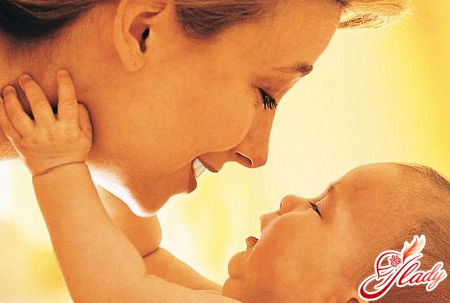
Let's describe the main problems in the behavior of the child and ways to deal with them:
- Obscene language.Unfortunately, children from not very successful families often end up in orphanages. More precisely, from very unsuccessful families. And it would be foolish to hope that this whole situation will pass the child by. And many foster families are faced with a situation when barely babbling crumbs have a stock of unprintable expressions greater than printed words. Of course, the situation is extremely unpleasant. But not the worst, believe me. Of course, you need to fight this habit. But you should not do it too harshly. In no case punish the child for swearing. And make comments very gently and tactfully. In the event that you yourself are not a fan of inserting a "fine word", the child will gradually stop using them.
- Acts "out of spite".Sometimes adoptive parents become desperate – the child constantly commits the same offenses. They conduct “explanatory work” with him, the child realizes his guilt and makes solemn promises not to do it again. But after some time, he repeats the same thing over and over again. Why does this happen? Is the child really trying to make you angry? Partly yes. The child really is trying to make you angry. But not just to get on your nerves! The only thing he wants is the confidence that he will be loved in any case, regardless of his actions. And the sooner you give him this confidence, the sooner all these “strength tests” will end. And you should not be angry with the child – most often he does all this unintentionally, on a subconscious level. If you continue to be angry with the child, remember that he was already betrayed once. And he is desperately afraid that this will happen again.
- Poor social adaptation of the child.Often, foster families turn to a psychologist with a complaint that the child cannot adapt to a group of children - in a kindergarten, school, or even on a playground. The parents make every effort, but the child does not make contact with other children in the group. This can manifest itself in various ways. Some children withdraw into themselves, avoid everyone, and prefer to spend time alone. They are little interested in common games and try with all their might to avoid them. Other children, on the contrary, behave extremely actively. But this activity is far from peaceful - the child shows extreme aggression towards the children around him.
In principle, both models of behavioris dictated by some motives - everything depends on the child's temperament and character traits. And the reason is quite simple. Your child has spent a long time in a children's group - a children's home. And no matter how good this children's home was, your baby still had to compete with other children. And this will in any case be deposited in the child's subconscious. Therefore, your main ally in this situation will be time, no matter how paradoxical it may sound. If your relationship develops correctly, the problem will gradually disappear by itself. The child will understand that the children around him are not rivals, but friends. However, such a wait-and-see tactic is suitable for phlegmatic children who are trying to avoid children's company. In the same case, if the child shows aggression, it is much wiser to seek help from a child psychologist. The specialist will realistically assess the psychological state of the child and select a correctional program that is ideal for him. As a rule, such a problem can be dealt with quite quickly. The main thing is not to let it slide. And remember that in any situation, no matter what happens, the most important thing a child needs is your love. Love is capable of such metamorphoses that neither teachers nor psychologists can do. Dare - and you will succeed! The main thing in this matter is a sincere desire. We recommend reading:




